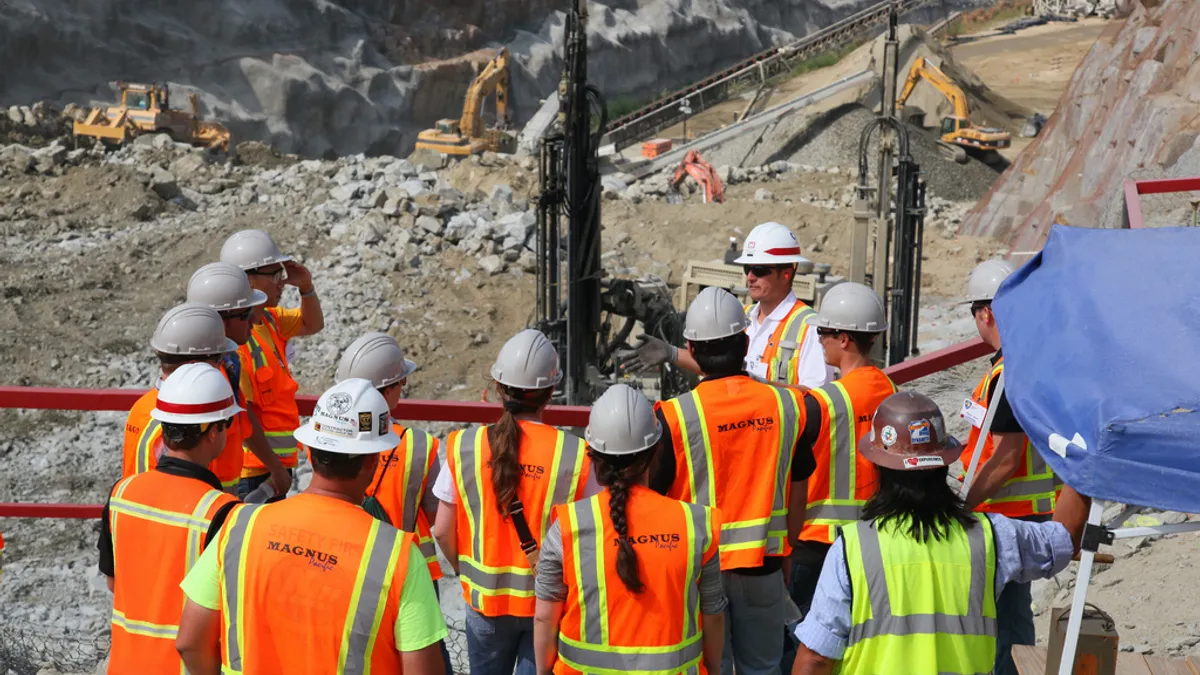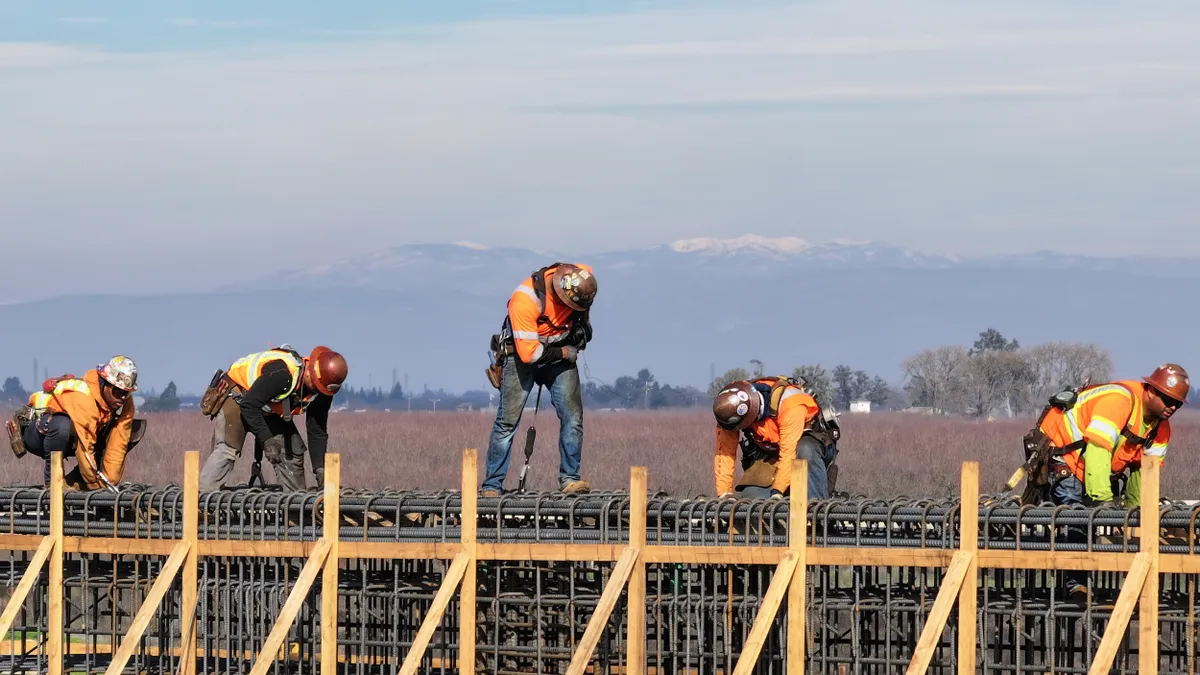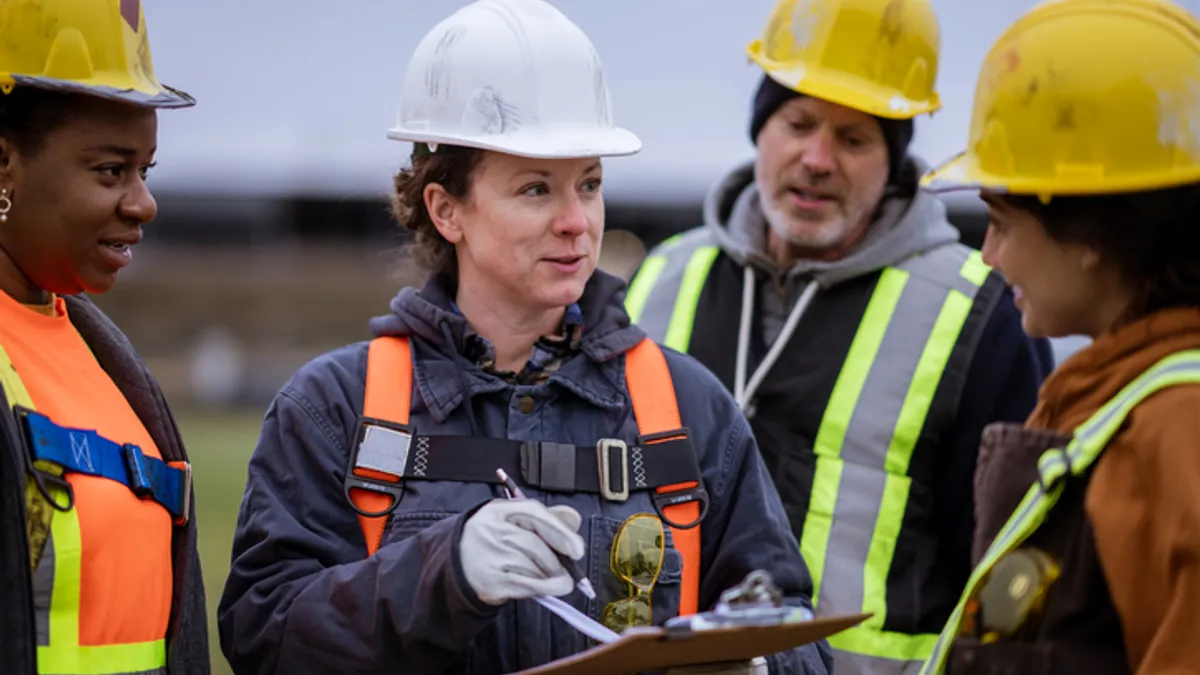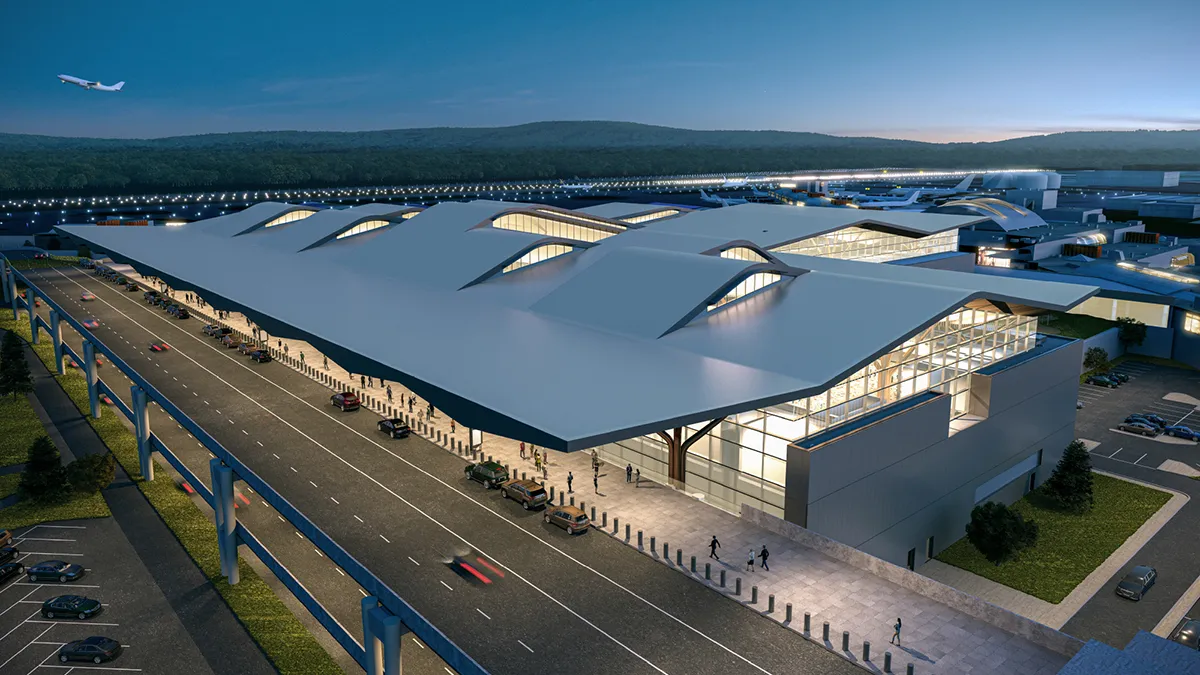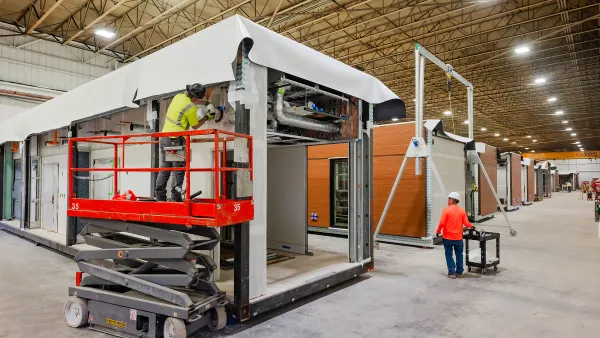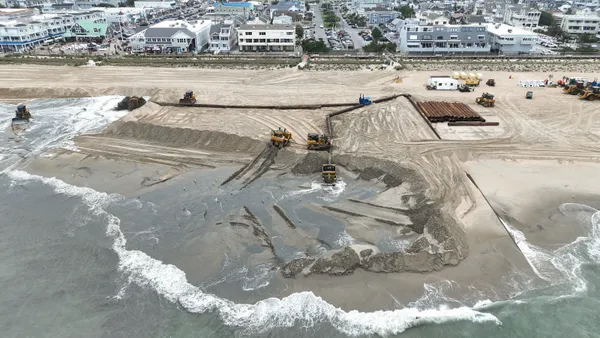Dive Brief:
- A recent survey by home services marketplace and website HomeAdvisor found that the construction skilled labor shortage has created a labor gap that is affecting the economy, limiting construction business growth and endangering the ability of knowledgeable tradesman to be able to pass down their skills to future generations of workers.
- In the survey, 93% of respondents said they believe that the labor shortage is preventing their businesses from growing over the next 12 months. And, while 50% of respondents plan to hire one or more skilled workers in the next year, 76% believe it will be hard to find new employees.
- The survey also found that 61% of respondents believe that a lack of exposure to the skilled labor field is preventing younger generations from entering the trades. Respondents said there is a negative perception of the trades as a career and a lack of training options for those who want to pursue a career as a construction craftsman.
Dive Insight:
"The labor shortage reveals a generational imbalance as the current aging workforce struggles to attract millennials into its ranks," Marianne Cusato, HomeAdvisor expert and professor at University of Notre Dame's School of Architecture, said in the report. "By creating more educational resources such as mentorships and apprenticeships, there is a tremendous opportunity to expose younger generations to the benefits that come with being a successful craftsman and independent business owner."
Another millennial recruitment strategy HomeAdvisor explores in its report is using the popularity of the maker movement among the demographic as a way to push for careers in the trades.
Nevertheless, while the results from the survey reveal some new perspectives from construction industry processionals about the labor shortage, the issue of the skilled labor shortage itself is longstanding.
In a December Bureau of Labor and Statistics report, the agency cited an aging construction workforce and lack of younger people entering the trades as a problem for the future stability of the skilled labor pool. In addition, the Associated General Contractors of America has consistently warned that the industry needs to develop a pipeline of new workers and has advocated for an increase in technical and career school education as a means to that end.


